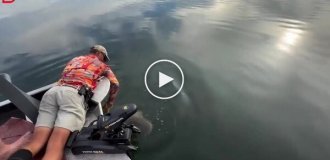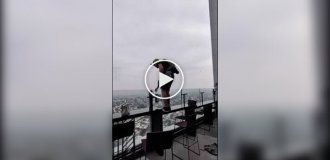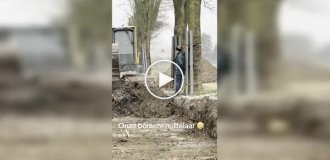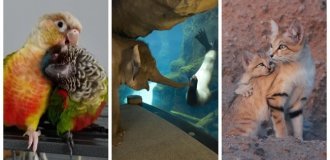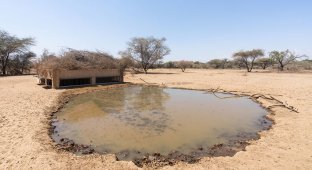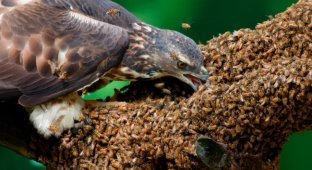Watering hole: the place of greatest danger in Africa (13 photos)
Since childhood, we've believed in the beautiful fairy tale: no one kills near water. There was Mowgli, calmly drinking from the river next to Shere Khan, because that's the Law of the Jungle: everyone has the right to live until their thirst is quenched. Alas, in real life, it doesn't work that way. The watering hole is the most dangerous place in all of Africa, where everyone is ready to die for a single sip of life. 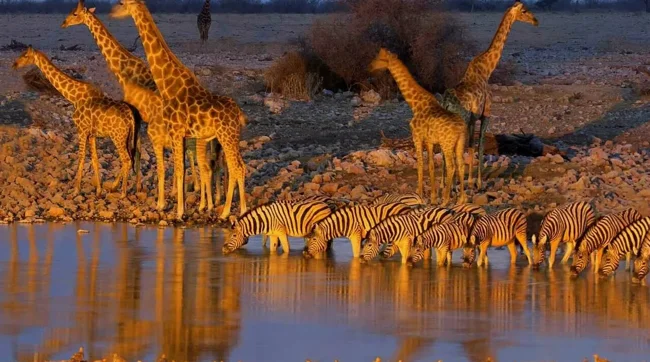
Even animals come to the local bar for a couple of drinks after a hard day...
Africa is a hot continent. The world's largest deserts are located here: the Sahara, Namib, Kalahari, and a hundred or so smaller ones. A vast area of the continent is covered in scorching sands and hot savannas, where a fierce struggle for survival rages. This is because the "dry season" reigns here for eight months a year, when there is virtually no rain. Because of this, many lakes dry up, and plants scorch under the scorching sun. And then life in Africa shrinks to a few spots—muddy puddles and streams where life-saving water still remains. 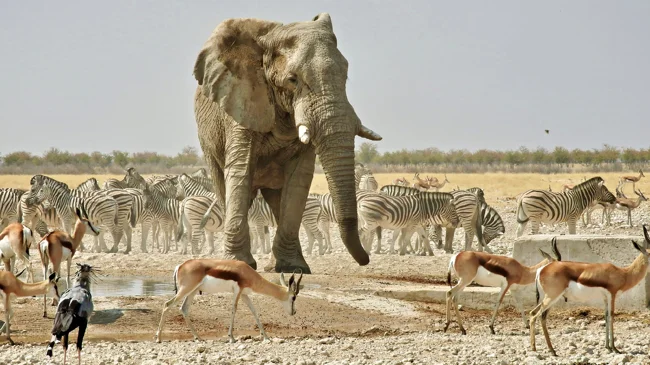
For reference: an elephant drinks between 100 and 300 liters of water per day! A large herd can literally drink up a small body of water.
In a drought, all roads lead to watering holes. Both predators and prey flock here. Elephants, zebras, antelopes, lions, hyenas, and birds are forced to crowd around the single body of water. It's here that the fate of those who will survive until the next rain is decided, and those who will be sacrificed today is decided. 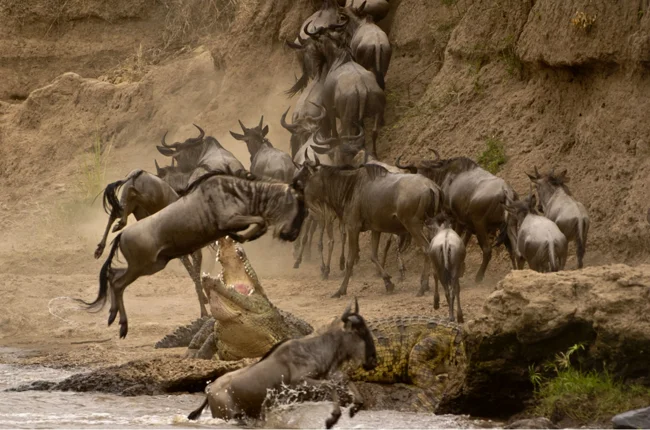
We jump over fires, and wildebeests jump over crocodiles.
Contrary to children's tales, no "water truce" exists in nature. Animals lack an interspecies social structure that could, like Kipling's, establish the Law of the Jungle. And there's no court to ensure that all animals obey it. Forget animals—just look at humans! Even among us, creatures with a high level of consciousness and culture, there are those who break the law and the criminal code. What kind of noble truce can you expect from animals? 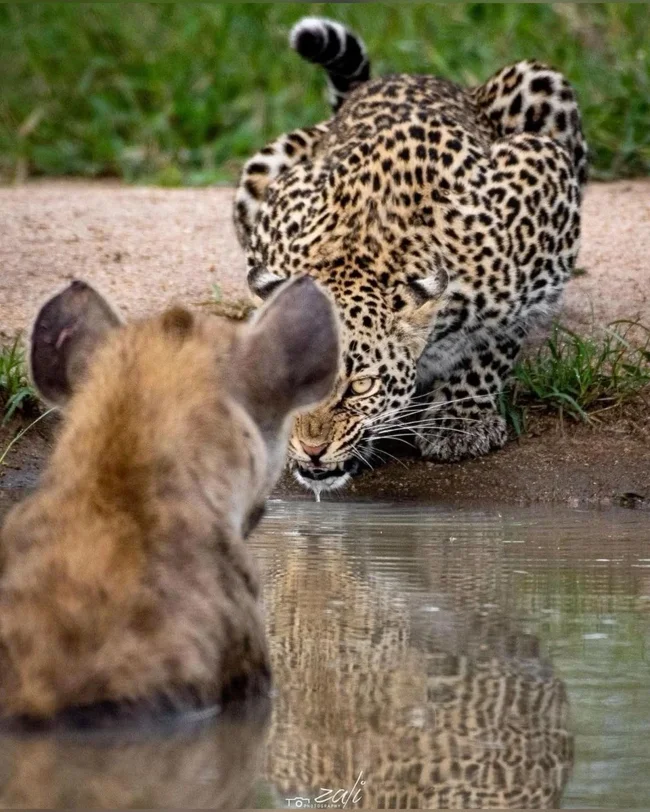
One more step, and I'll be drinking your blood instead of water.
Unfortunately, this fact is confirmed by dry statistics. A study in Waterberg National Park showed that most killings occur within a 2-kilometer radius of water bodies. Meat eaters aren't stupid, after all. What's the point of running across the savannah in search of food? Just wait by the bank of a puddle, and the prey will come to you. With such an abundance of prey, it's extremely easy for predators to identify weak or sick individuals. 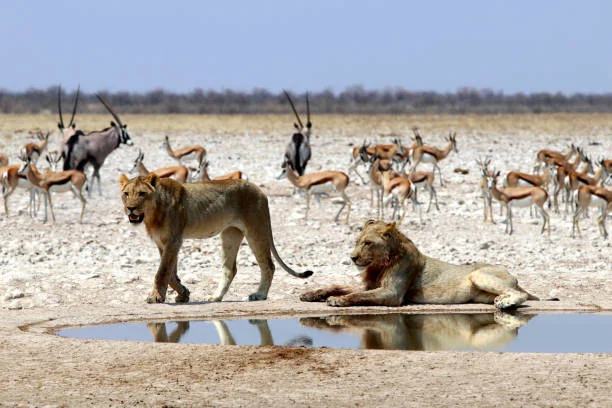
The monopolization of natural resources looks something like this.
A watering hole becomes a natural trap, around which lions, leopards, caracals, hyenas, and generally all sorts of toothy, hungry creatures always lie in wait. They wait for their prey to pounce and bend its head to drink. 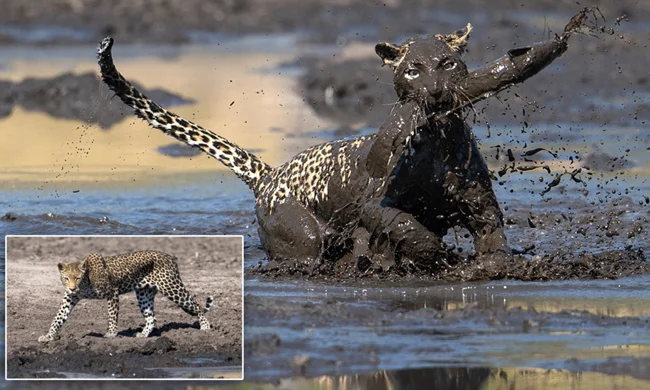
Some predators discover new prey during the dry season. For example, a leopard was able to hunt fish.
Danger lurks not only from the rear, but also from the front. Even the smallest stream is sure to contain a dozen crocodiles. For them, it's like a supermarket—the animals themselves poke their snouts into the water, and everyone has to grab them! There's no talk of a truce; those who survive are lucky, but tomorrow the predators will still take revenge. 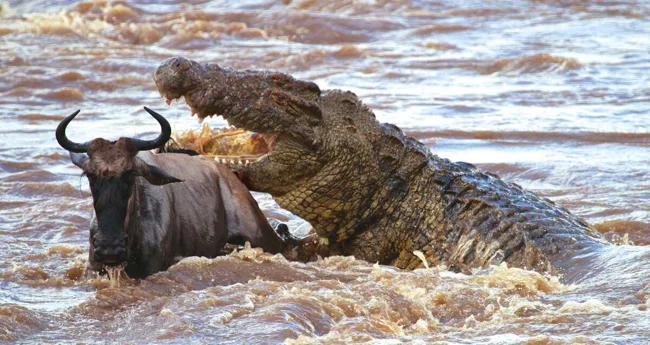
Sometimes people underestimate the titanic size of Nile crocodiles, which can weigh almost a ton and measure up to 5 meters in length. 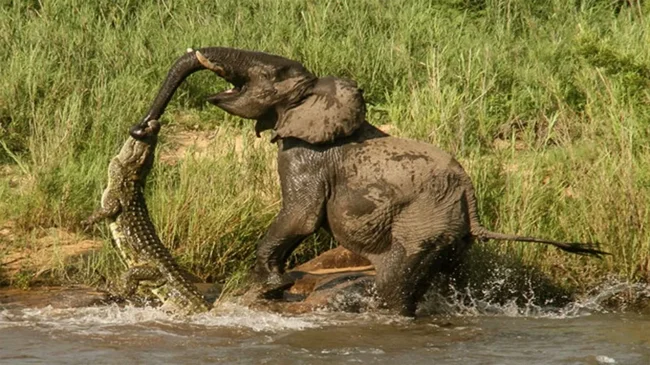
But some prey is still too much for them.
Adding a spice to their already challenging life are the herbivorous inhabitants of the waters – hippos. Rivers and lakes are a vital necessity for them; their skin is not adapted to prolonged exposure to the scorching rays. Deprived of their natural habitat, the animals literally go crazy! Enraged hippos wrestle in the mud for scraps of water, both with each other and with any unfortunate creatures that have entered their territory. Their jaws could contain anything from a crocodile to a lion to an antelope! 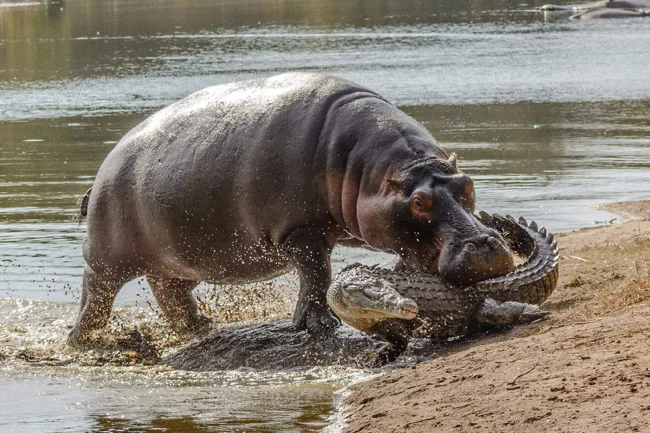
Hippos are generally herbivores. However, recent studies show that they're not averse to a snack of meat, either.
But most importantly: danger can even come from one's own kind! A panicked herd flees without regard for where it's going. Considering that hundreds, even thousands, of animals gather at a watering hole, panic in such a crowd is deadly. Trip and fall? You'll likely be trampled by your own kind! 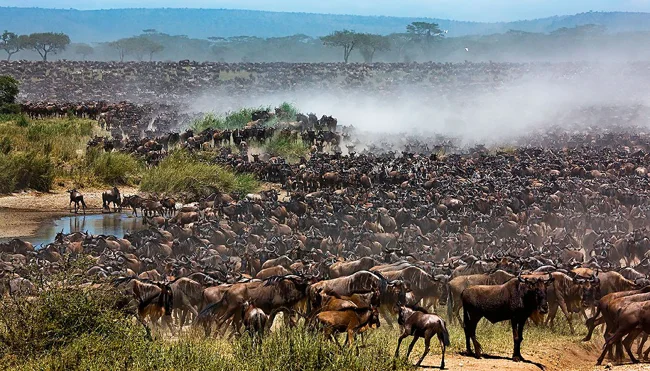
Does everyone remember what happened to Simba's dad when a herd of antelope like that ran over him? 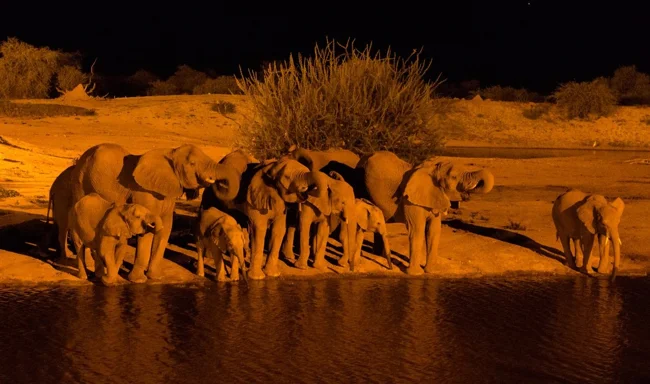
Highly intelligent elephants often prefer to endure the daytime grind so they can come to the watering hole at night, when the huge herds of ungulates are gone.
Besides meat-eaters, watering holes are also favored by parasites. The animals enter the water, bathe, and sometimes defecate right there. Then, the next day, they return to the same puddle and repeat the process. A crowd of animals in one place, along with dampness and mud, are ideal conditions for the proliferation of all kinds of ticks, worms, and bacteria. But there's no escape from them, as you can't survive for more than a couple of days in hot Africa without water. 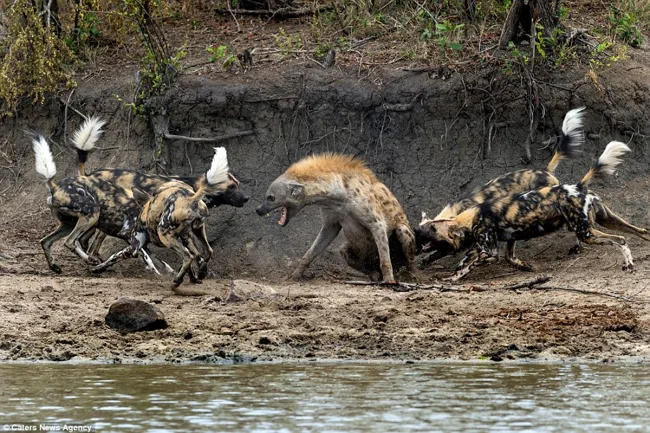
Sometimes predators can also become prey. Predatory animals are extremely territorial and do not tolerate competition.
People are also well aware of animals' vulnerability and take advantage of it. For scientists, a watering hole is the perfect place to observe the gathering of different species, their behavior, and interactions. 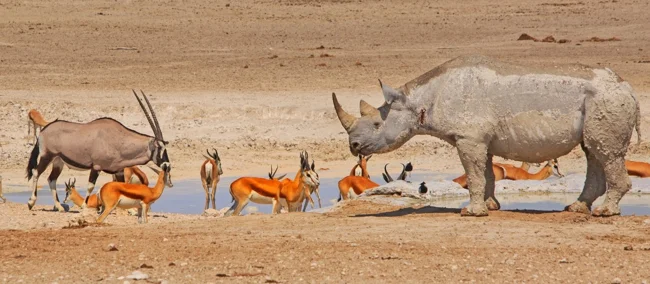
Class reunion 30 years after high school graduation.
But poachers behave in the most horrific, inhumane manner. In 2013, tusk hunters in Zimbabwe poisoned several watering holes with cyanide. Their target was elephants, but a catastrophe ensued: across an area of over 14,000 square kilometers, every animal began to die at once. Herbivores drinking from the contaminated lakes, predators eating their carcasses, and even scavenging birds. Gamekeepers estimate that around 300 elephants perished. Losses among other species were not counted, but this was simply an outrageous case of poaching, at any time in history. Sadly, wildlife protection in Africa remains poor.
